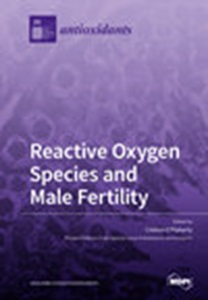Unraveling the Protective Role of Oleocanthal and Its Oxidation Product, Oleocanthalic Acid, against Neuroinflammation
IF 6
2区 医学
Q1 BIOCHEMISTRY & MOLECULAR BIOLOGY
引用次数: 0
Abstract
Neuroinflammation is a critical aspect of various neurodegenerative diseases, such as Alzheimer’s and Parkinson’s diseases. This study investigates the anti-neuroinflammatory properties of oleocanthal and its oxidation product, oleocanthalic acid, using the BV-2 cell line activated with lipopolysaccharide. Our findings revealed that oleocanthal significantly inhibited the production of pro-inflammatory cytokines and reduced the expression of inflammatory genes, counteracted oxidative stress induced by lipopolysaccharide, and increased cell phagocytic activity. Conversely, oleocanthalic acid was not able to counteract lipopolysaccharide-induced activation. The docking analysis revealed a plausible interaction of oleocanthal, with both CD14 and MD-2 leading to a potential interference with TLR4 signaling. Since our data show that oleocanthal only partially reduces the lipopolysaccharide-induced activation of NF-kB, its action as a TLR4 antagonist alone cannot explain its remarkable effect against neuroinflammation. Proteomic analysis revealed that oleocanthal counteracts the LPS modulation of 31 proteins, including significant targets such as gelsolin, clathrin, ACOD1, and four different isoforms of 14-3-3 protein, indicating new potential molecular targets of the compound. In conclusion, oleocanthal, but not oleocanthalic acid, mitigates neuroinflammation through multiple mechanisms, highlighting a pleiotropic action that is particularly important in the context of neurodegeneration.揭示油菜醛及其氧化产物油菜酸对神经炎症的保护作用
神经炎症是阿尔茨海默氏症和帕金森氏症等多种神经退行性疾病的一个重要方面。本研究利用脂多糖激活的 BV-2 细胞系研究了油菜醛及其氧化产物油菜酸的抗神经炎症特性。我们的研究结果表明,油菜醛能显著抑制促炎细胞因子的产生,减少炎症基因的表达,抵消脂多糖诱导的氧化应激,提高细胞的吞噬活性。相反,油黄质酸则不能抵消脂多糖诱导的活化。对接分析表明,油菜醛与 CD14 和 MD-2 之间的相互作用可能会干扰 TLR4 信号传导。由于我们的数据显示,油菜黄素仅部分降低了脂多糖诱导的NF-kB激活,因此仅作为TLR4拮抗剂并不能解释其对神经炎症的显著效果。蛋白质组学分析表明,油菜素能抵消 LPS 对 31 种蛋白质的调节作用,其中包括凝胶蛋白、凝集素、ACOD1 和 14-3-3 蛋白的四种不同同工形式等重要靶标,这表明该化合物具有新的潜在分子靶标。总之,油菜醛(而非油菜酸)可通过多种机制减轻神经炎症,凸显了其在神经退行性病变中尤为重要的多效性作用。
本文章由计算机程序翻译,如有差异,请以英文原文为准。
求助全文
约1分钟内获得全文
求助全文
来源期刊

Antioxidants
Biochemistry, Genetics and Molecular Biology-Physiology
CiteScore
10.60
自引率
11.40%
发文量
2123
审稿时长
16.3 days
期刊介绍:
Antioxidants (ISSN 2076-3921), provides an advanced forum for studies related to the science and technology of antioxidants. It publishes research papers, reviews and communications. Our aim is to encourage scientists to publish their experimental and theoretical results in as much detail as possible. There is no restriction on the length of the papers. The full experimental details must be provided so that the results can be reproduced. Electronic files and software regarding the full details of the calculation or experimental procedure, if unable to be published in a normal way, can be deposited as supplementary electronic material.
文献相关原料
| 公司名称 | 产品信息 | 采购帮参考价格 |
|---|
 求助内容:
求助内容: 应助结果提醒方式:
应助结果提醒方式:


